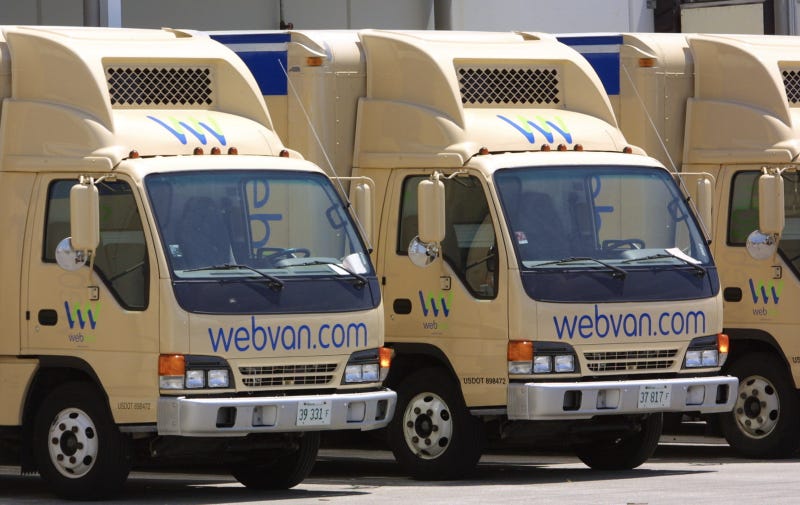Why We Must Never Forget to Keep Forgetting
After living and working in the Silicon Valley startup world for 10 years, you’d think I would be entirely used to its many idiosyncrasies…
After living and working in the Silicon Valley startup world for 10 years, you’d think I would be entirely used to its many idiosyncrasies. But up until recently, I still found myself shocked when in a meeting I would reference a company that was a spectacular failure, and no one else in the room would remember it (e.g. Clinkle, Color, Betterworks, Webvan, etc.)
This used to surprise and annoy me, but then I realized: the reason the Silicon Valley thrives is because we can and do forget.
Take WebVan for example. WebVan was an online grocery store in the late ’90s that delivered to customers’ homes within 30 minutes. At its peak, it was valued at $1.2 billion and active in major cities across the U.S. But for a number of reasons, including rapid expansion and a flawed fulfillment infrastructure, WebVan lost $830 million and filed for bankruptcy in 2001 after just three years of operation. $400 million of venture capital from firms including Benchmark, Sequoia, and SoftBank went down the drain. The company was considered one of the biggest failures of the dot-com era.
Today however, grocery delivery services are thriving, with Instacart valued at $7.6 billion. But had entrepreneurs and investors remembered the failure of WebVan too clearly (assuming they were even alive during its heyday), they would have been too scared to take a chance diving into a sector “that everyone knows won’t work”.
Though I used to consider the ability to forget a weakness, I now see it as a vital part of what keeps the startup world turning round and round.
The Right Way to Remember
But as important as forgetting is for both entrepreneurs and investors, there are also reasons to remember, and a right way to do it.
There is tremendous value in building on the experience of others — it’s the only reason we aren’t still monkeys hunting and gathering our food. But it’s important to assess the extent to which a past experience holds up in our world today, especially considering advances in technology.
For many who remember WebVan’s rapid descent into bankruptcy, the pejorative soundbite heard over and over again was: “Somebody in the 90s thought it was a smart idea to ship dog food!” But if you want to build on past experience, you must dive deeper than the soundbite summary.
By the time Instacart was founded in 2012, there were multiple tactical changes in the ecosystem that didn’t exist in 1999 when WebVan came and went, including:
Internet penetration (up from 5% of US households to 75%+ by 2012)
Smartphone adoption (from 0% to 75%)
More efficient supply-chain network/last mile supply-chain network
It’s critical to evaluate the individual lessons learned from an experience, as well as their context, to assess whether they still have validity today. Too many people operate in soundbites and assume that an idea will never work simply because it hasn’t before. Instead, focus your energy on the many lessons that lie beneath those soundbites.
For budding entrepreneurs struggling to find an idea, one brainstorming method is to scour the trail of failed startups from the past. By evaluating each failure and digging in to see if any fundamental pillars have changed today, you could bring back to life a startup idea that may have been poorly timed originally but could thrive today.
*Thanks to Bill Gross for co-authoring with this post
Ubiquity Ventures — led by Sunil Nagaraj — is a seed-stage venture capital firm focused on startups solving real-world physical problems with "software beyond the screen", often using smart hardware or machine learning.
If your startup fits this description, fill out the 60-second Ubiquity pitch form and you’ll hear back shortly.




